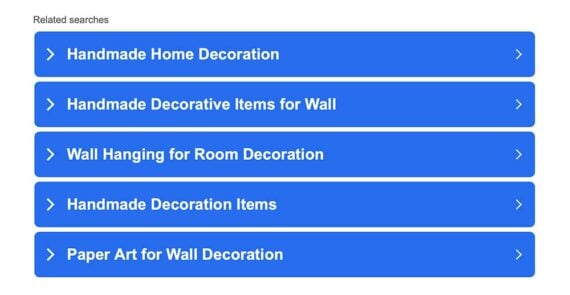At the fringes of advertising abritage and search engine optimization, some content teams are generating thousands of mediocre articles in quest of rankings.
This brute force approach is addressing a challenge with modern organic search.
Optimizing a page for prominent rankings has never been easy. But 2025 has been, for many news publishers, a perfect storm of zero-click searches and a migration to generative AI platforms. Some outlets have experienced more than a 50% drop in search traffic.
Consider three recent headlines.
- “AI Has Upended the Search Game. Marketers Are Scrambling to Catch Up.” — The Wall Street Journal, May 8, 2025.
- “Forget SEO, The Hot New Thing is ‘AEO'” — Business Insider, May 12, 2025.
- “News Sites Are Getting Crushed by Google’s New AI Tools” — The Wall Street Journal, June 10, 2025.
Why So Hard?
Traffic from organic search results is declining owing to artificial intelligence and changes in user behavior.
For example, some folks now search on AI chatbots (behavior), and the search engines produce AI Overviews (evolution). Together, chat interfaces and AI search results are compressing search query responses into zero-click answers.
Nonstop algorithm changes are having an impact, too. As a consequence, Core Web Vitals, structured data markup, and Google’s E‑E‑A‑T (Experience, Expertise, Authoritativeness, Trustworthiness) are now essential.
Finally, there is the competition. The rise of AI writing tools has led to a massive surge of cookie-cutter content online, targeting seeminglly every conceivable keyword phrase. More on this in a moment.
SERP ranks don’t mean what they used to. For example, ranking in the top five for an important topic or keyword was once a huge win. In 2025, however, there is likely to be an AI Overview that satisfies the searcher (without having to click).
These and other SEO challenges breed uncertainty with traditional publishers and content marketers. Which content topics will drive site traffic?
The unlikely answer to this question, at least for some folks, is to create more low-quality, AI-generated content.
Arbitrage
Arbitrage is the practice of profiting on the price difference of an identical or similar asset in different markets.
Google Ads’ “Related Search on Content” (RSOC) is a form of advertising that displays search terms on a web page. Some arbitrageurs use RSOC to profit.
The arbitrage starts with a content site, and works like this:
- A website owner lists several related keywords on an AI-generated article page.
- The keywords link to search results on the same website.
- At the top of those site-search results are Google’s RSOC ads with high-value keywords.
- The business earns an advertising revenue share when visitors click the ads.

Advertising arbitrage with ROSC starts with a lightweight article page to encourage a “Related searches” click.
Next, the business buys relatively low-value-keyword ads on Google Search to drive traffic to its AI article page, encouraging users to click on related search options, thereby earning money on the difference between ad cost and ad revenue.
Arbitrageurs use AI to generate thousands of middling articles they can drive traffic to. And oddly, these pages sometimes rank in the top 100 spots.
SEO Topic Signal
Scouring SERPs for opportunities, a few niche content agencies noticed what the arbitrageurs were doing.
Here were AI pages built not to answer a need — in fact, providing so little information that a visitor would click a related search term — but to identify a topic signal.
In response, these agencies are also generating numerous subpar articles to find ranking opportunities.
One such agency explained it this way. Creating a quality blog post for a client might cost $1,500, considering research, composition, graphics, and other expenses. And there is no guarantee the article will rank well.
Instead, the agency creates 60 AI-generated, human-edited articles on related topics. All reside on the client’s blog, although not featured.
Finally, they wait. If it creeps into the top 100 organic search rankings, as reported by Semrush or Ahrefs, an article receives royal treatment. A human author rewrites it, places it in a topic cluster, and features it on the blog.
Application
For marketers, the lesson is not to flood the web with cheap AI articles. Rather, it is to recognize that finding ranking opportunities can be a process of discovery.





